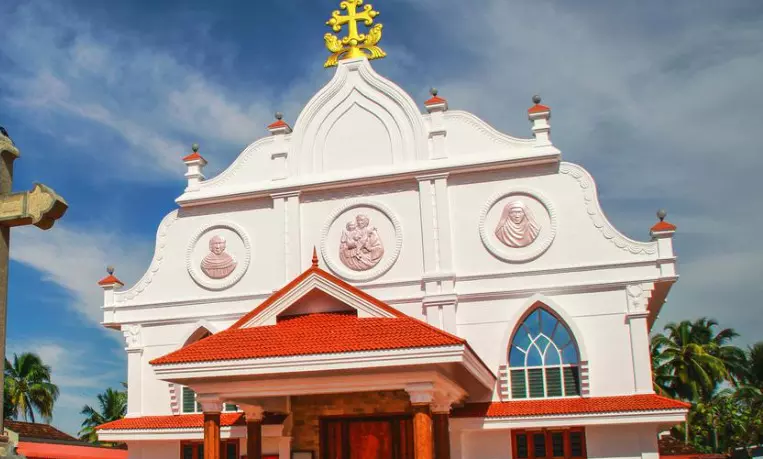Syro Malabar Church voices concern over Chhattisgarh HC ruling upholding village bans on pastors

Kochi: The Kerala-based Syro Malabar Church has expressed strong concern over a recent Chhattisgarh High Court ruling that upheld the installation of signboards in certain villages prohibiting the entry of pastors and converted Christians.
In a Facebook post, the influential Catholic Church described the development as "the most divisive boundary the country has seen since Partition," alleging that it marks a new form of "religious discrimination" in secular India.
The post said that by putting up boards banning pastors and converted Christians in some villages of Chhattisgarh, "a new chariot march of institutionalised communalism has been set in motion."
It urged that the High Court verdict "must be challenged in the Supreme Court" and called for resistance against such "Hindutva invasion," stressing that the struggle to keep India secular should be carried out "only in alliance with the Constitution of India, the Magna Carta of citizens' rights."
The post, however, cautioned against countering the issue by aligning with other forms of "religious extremism", calling instead for a constitution-based approach to defend secularism and equality.
The statement came days after the Chhattisgarh High Court disposed of two petitions seeking the removal of hoardings that prohibit the entry of pastors and "converted Christians" in eight villages.
The high court observed that the hoardings appeared to have been installed by the respective gram sabhas as a precautionary measure to prevent alleged forced religious conversions through "allurement or fraudulent means."
The court ruled that the installation of such hoardings "cannot be termed unconstitutional."
The petitions, filed by residents from Kanker and Bastar districts, had claimed that the signboards—put up under the banner "Hamari Parampara Hamari Virasat" (Our Tradition, Our Heritage)—amounted to the segregation of Christians and their leaders from the mainstream village community and violated Article 25 of the Constitution, which guarantees freedom of religion.
The state government, however, maintained that the hoardings were intended to safeguard the local cultural heritage and identity of tribal communities under the provisions of the Panchayat (Extension to Scheduled Areas) Act, 1996 (PESA Act), and were aimed at curbing alleged illegal conversions.



